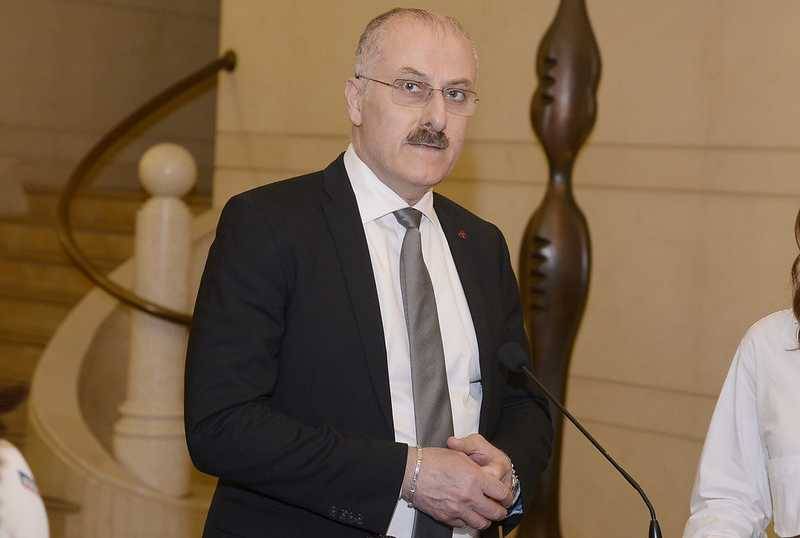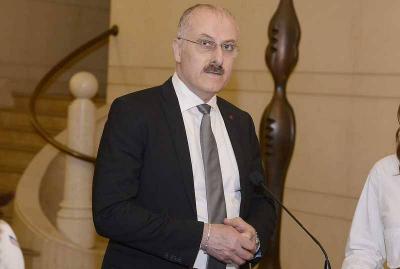Bilal Abdullah, a member of the Democratic Gathering, warned about the dangerous regional scene that is deteriorating, amid the ongoing Israeli genocidal war against the Palestinian people in Gaza, which aims to destroy them while disregarding international appeals, resolutions, and objections from global public opinion. Abdullah stated in a statement to Kuwait’s "Al-Anbaa" that Israel continues to implement its plan and aggression to displace the Palestinian people, uproot them from their land to fully control Gaza and then the West Bank, establishing settlements there. This is happening alongside an international and local impotence in restraining this violent Zionist aggression.
He considered that there is a Western escalation in supporting the Israeli agenda, possibly turning a blind eye to attempts to prevent this from escalating into comprehensive war in the region. Abdullah pointed out that Israel repeatedly violates the rules of engagement, with the latest incident being the bombing of the Iranian consulate in the Syrian capital, Damascus, which seemed to be an attempt to provoke the West, specifically the United States, into a direct confrontation with Iran and its allies, thereby transforming the conflict into a widespread regional confrontation.
Regarding the ongoing Israeli assaults on Lebanon, Abdullah affirmed that Israel has always been and will remain ready to carry out any aggression against Lebanon, seeking no justification or excuse. He emphasized the position of supporting the people in the south against this arrogance and Zionist crime, and sympathizing with and supporting the people of Gaza and Palestine, discouraging any justification for the Israeli actions, as if implying a division among the Lebanese people regarding this issue. He noted that both the government and they themselves were fully keen not to be drawn into this comprehensive war, which they know carries significant repercussions, yet this does not change their stance in condemning and expressing solidarity with their people in Palestine and southern Lebanon.
On whether there are any new developments regarding the presidential file, Abdullah believed that this file remains stagnant, with an internal stalemate in finding a settlement and a breakdown in serious dialogue among Lebanese factions to find a common ground that could lead to the election of a new president, which is desperately needed to complete the establishment of constitutional institutions and formulate an economic recovery plan in response to the ongoing Israeli aggression and events in Gaza. He stressed the necessity of having fully empowered constitutional institutions; unfortunately, this internal impasse persists, and despite all external attempts, there has been an inability to find a solution, especially at a time when it is difficult to separate the efforts of the quintet committee and external players in the presidential entitlement from the regional game and the ongoing war that is redrawing the region.
Regarding the recent meeting between Speaker Nabih Berri and former Progressive Socialist Party leader Walid Jumblatt, Abdullah confirmed that it was an attempt to find solutions and pathways to solidify internal unity, support Lebanon's resilience, and facilitate upcoming tasks within the framework of necessary settlements, while mutually ensuring the protection of the country from the repercussions of the ongoing genocide in Gaza and the open war in southern Lebanon. He noted that this meeting is ongoing for consultation, exchanging views, and seeking avenues to affirm national unity against the Israeli aggression and protect Lebanon from the consequences of this war to avoid being dragged into a comprehensive conflict.
Abdullah commented on the subject of municipal and elective elections, expressing regret that it has become a ball tossed between the government and the Parliament, while responsible discourse is needed to address whether the circumstances allow for holding these elections. He emphasized the urgent and necessary nature of holding municipal and elective elections, especially with more than 100 dissolved municipalities, many municipalities being weakened, and vacancies in various positions, without any financial or administrative obstacle in this regard, particularly since the Interior Minister announced readiness. Additionally, he noted that the budget included allocations for municipal and elective elections. A careful assessment of the security situation in Lebanon is required to determine whether it is feasible to conduct the elections given the ongoing confrontations and Israeli aggression, which is extending beyond the south to many areas. The answer lies with the security agencies through the government.
He concluded by stating that if there are concerns or fears, they are in favor of postponing those elections rather than extending them, and they remain fully prepared to conduct them if the security situation stabilizes and there is a ceasefire, which they hope will happen soon according to "Al-Anbaa."




